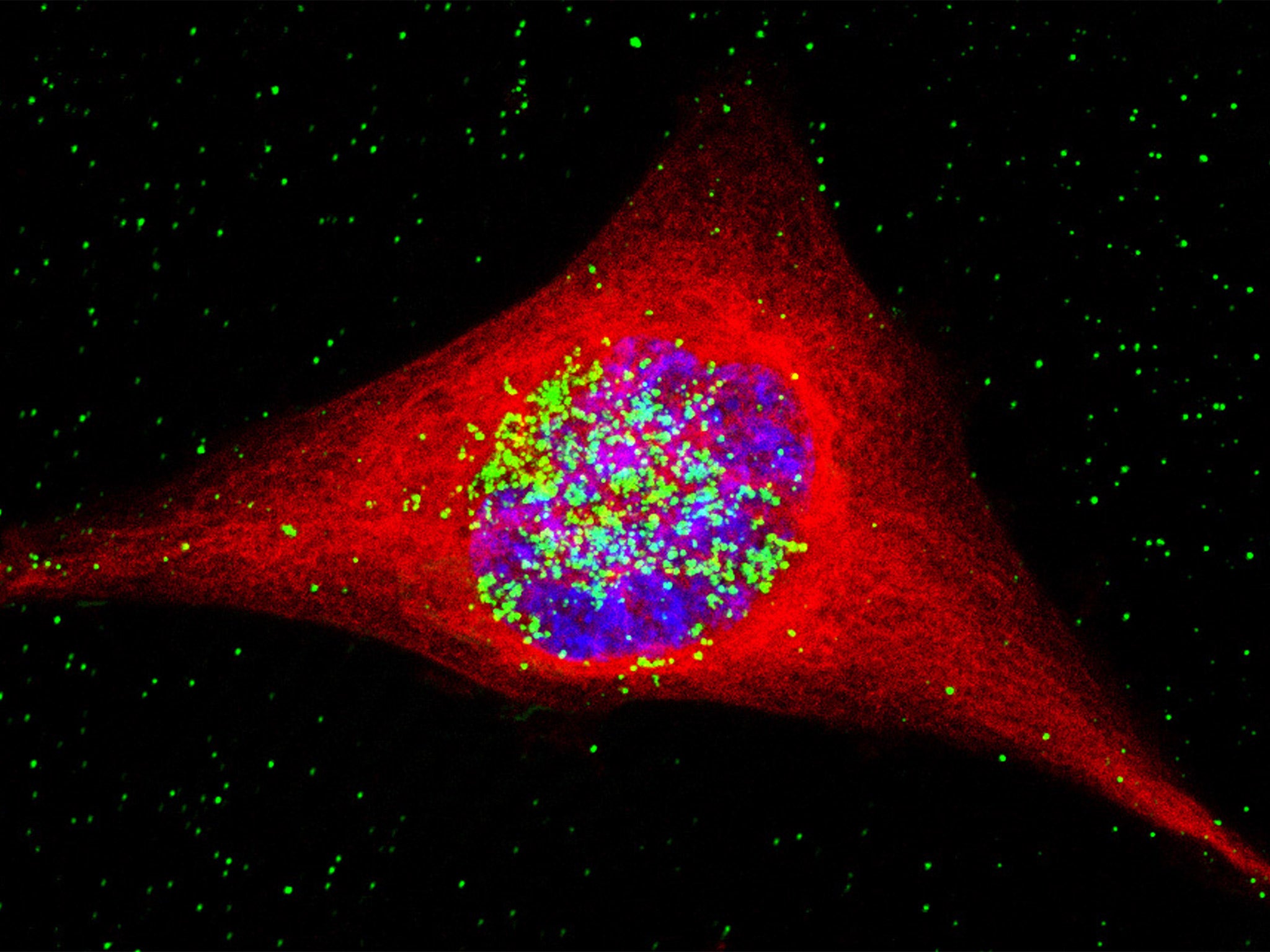Golden touch? Scientists use precious metal to destroy tumours
Brain cancer cells destroyed by nanotechnology

Scientists have destroyed brain tumour cells by combining nanotechnology with existing cancer drugs, in a pioneering technique which could one day lead to treatment for some of the most aggressive forms of cancer.
The technique, dubbed “Trojan horse” by the Cambridge scientists who devised it, delivers nanoparticles which are a mix of gold and cisplatin – a common chemotherapy drug - into the cells of cancer tumours. When exposed to radiotherapy, the gold releases an electron which damages the DNA of the cancer cell, leaving it vulnerable to attack by the cancer drug.
Researchers said that the process had been so successful that cell cultures used in the lab showed no signs of regrowth after 20 days – suggesting that the tumour cells had been destroyed.
So far it has only been used on cells grown in the lab from patients with glioblastoma multiforme – the commonest and most aggressive form of brain tumour. In this form of tumour, cancer cells become enmeshed with healthy cells, making surgery near impossible. However, the limited range of the electron released by gold in response to radiotherapy would in theory limit the damage to healthy cells nearby.
Gold was used because it is a safe material which can be easily manipulated into the size and shape of particle required. The study was published in the Royal Society of Chemistry journal Nanoscale.
Mark Welland, professor of nanotechnology and fellow of St John’s College, Cambridge, said that by combining the technique with materials that target cancer cells in the body, his team “should be able to develop a therapy for glioblastoma and other challenging cancers in the future”.
He told The Independent: “I think that medicine is going to be the area that we look back on in 10 years’ time and say: nano had a huge impact. We already have other projects using different nanoparticles to target other human diseases at the cellular level, including tuberculosis and neurodegenerative diseases such as Parkinson’s.”
Nanotechnology would also have a major impact in the area of health diagnostics, he predicted, enabling instant analysis of blood, saliva and urine in devices which could be used by the patient themselves to monitor their condition.
Join our commenting forum
Join thought-provoking conversations, follow other Independent readers and see their replies
Comments
Bookmark popover
Removed from bookmarks